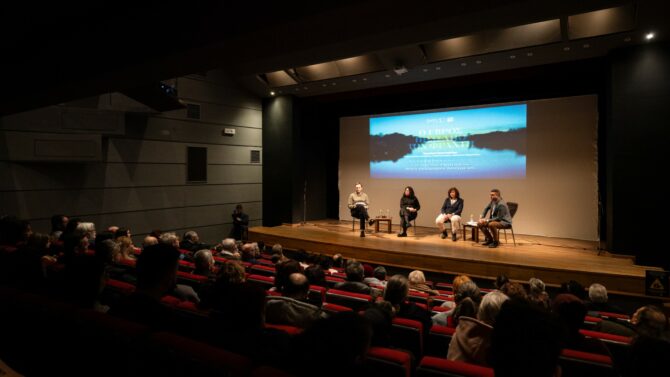From Texas to Orestiada

Trump, a festival in Texas and an event in a cinema theater in Orestiada make up the frame of a big picture that journalism has probably missed. But is it too late?
Until recently, secret algorithms, the so-called ‘black boxes’, determined which stories appeared in our feeds, undermining a core democratic principle—that informed citizens are good citizens. This happens because algorithm-driven feeds are optimized for engagement rather than enlightenment. However, in the process, important stories about genocides, oligarchs, or authoritarianism have been silenced, blocked, or removed entirely. Now we’ve entered a new era in which algorithms shape not just our newsfeeds but the news itself. AI systems generate news content and deepfakes, interfering with elections—the bedrock of democratic processes—as recently observed in Slovakia. The situation becomes even more dystopian when considering the close ties between big tech companies and political powers, a reality we’ve all recently witnessed.
A few weeks ago, I returned to Athens after attending two significant conferences in the United States: NICAR in Minneapolis, currently the leading global conference on computer-assisted reporting, and South by Southwest (SXSW) in Austin, Texas, which highlights the intersection of technology, film, music, education, and culture. Both events were dominated by panels on AI and its profound impact on every aspect of human life. If I could summarize the essence of both conferences in one sentence, it would be that journalism today stands at a critical juncture: adapt and lead or fade away.
Audiences say they want news delivered “quickly, clearly, and accurately” in “succinct and unbiased language.” However, as one SXSW speaker observed, we live in a paradox: information has never been more accessible, yet public trust in information has never been lower. While newsrooms recognize they are “competing with AI” and influencer-driven content to shape public understanding, research presented at SXSW revealed that at least half of both journalists and the public believe non-journalists (YouTubers, TikTokers, Substack writers) can produce journalism. But can we, or should we, trust journalism produced by non-journalists?
It’s clear journalism must lead, rather than follow, the technological advancement of its industry. At the same time, journalism needs to reinforce its core values—accuracy, accountability, and transparency. Because these values will distinguish quality journalism from so-called “content.” And just as, while artificial intelligence continues to advance, we need to become more human, similarly, journalists need to become more journalistic.
Amid these significant global changes, we believe it is essential to act now and prioritize the voices of young people as key to sustainable solutions. iMEdD is launching an ambitious new initiative: a global, nonprofit, video-first newsroom, employing young journalists from around the world. Our goal is to support, mentor, and empower this younger generation, amplifying their voices as they explore new approaches, innovative models, and fresh paradigms in journalism. After all, as Eleanor Roosevelt once said, “The future belongs to those who believe in the beauty of their dreams.”

